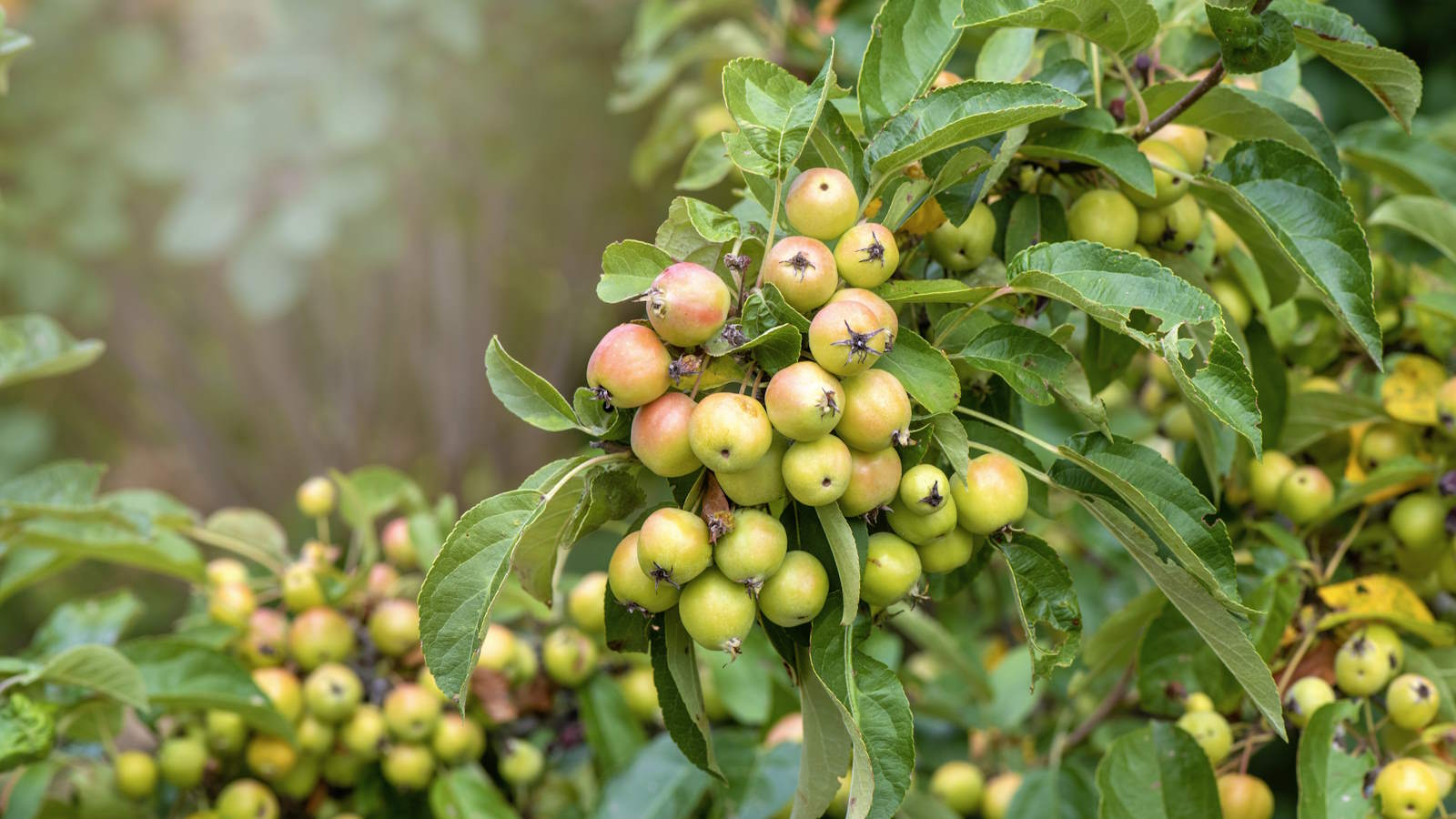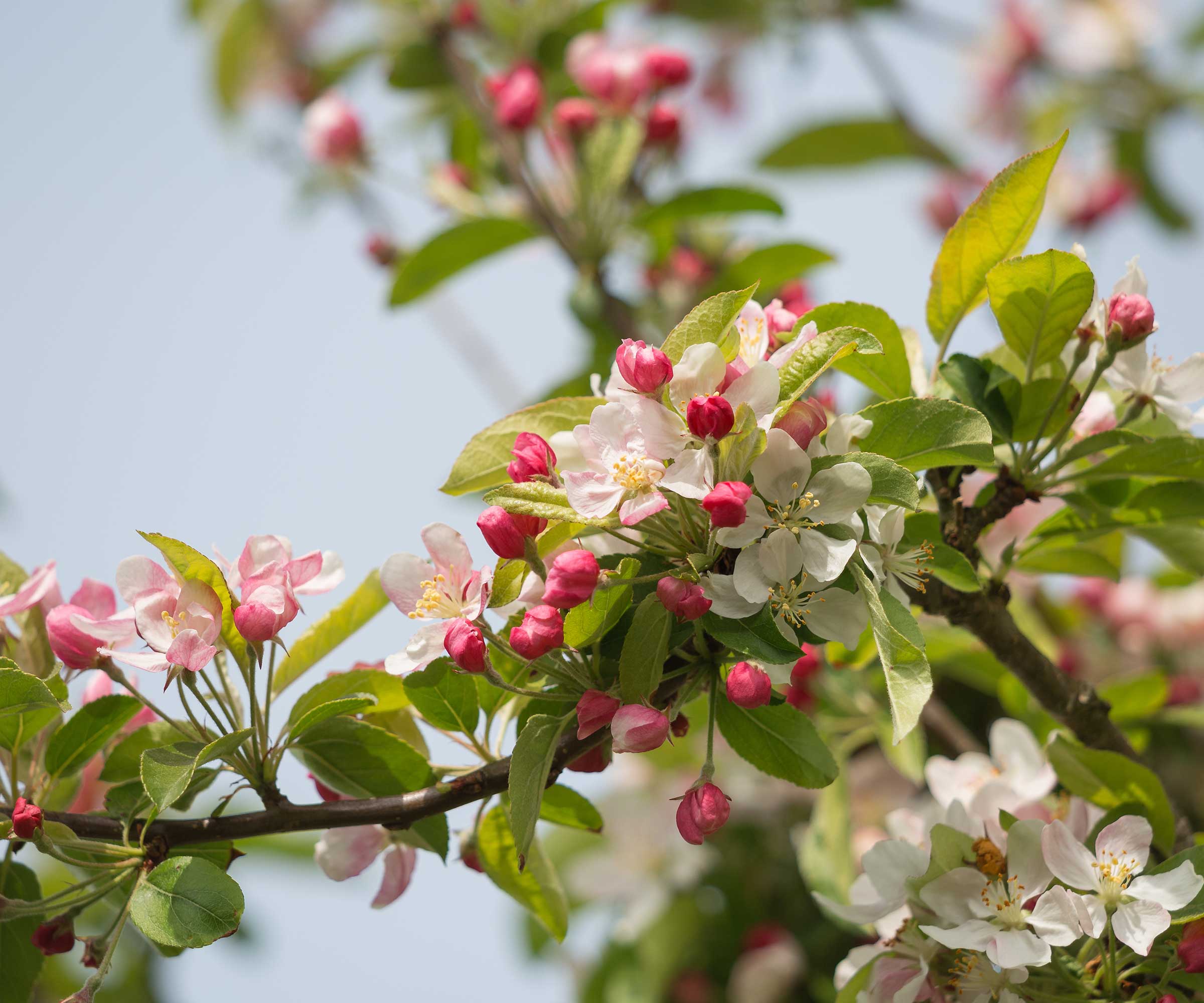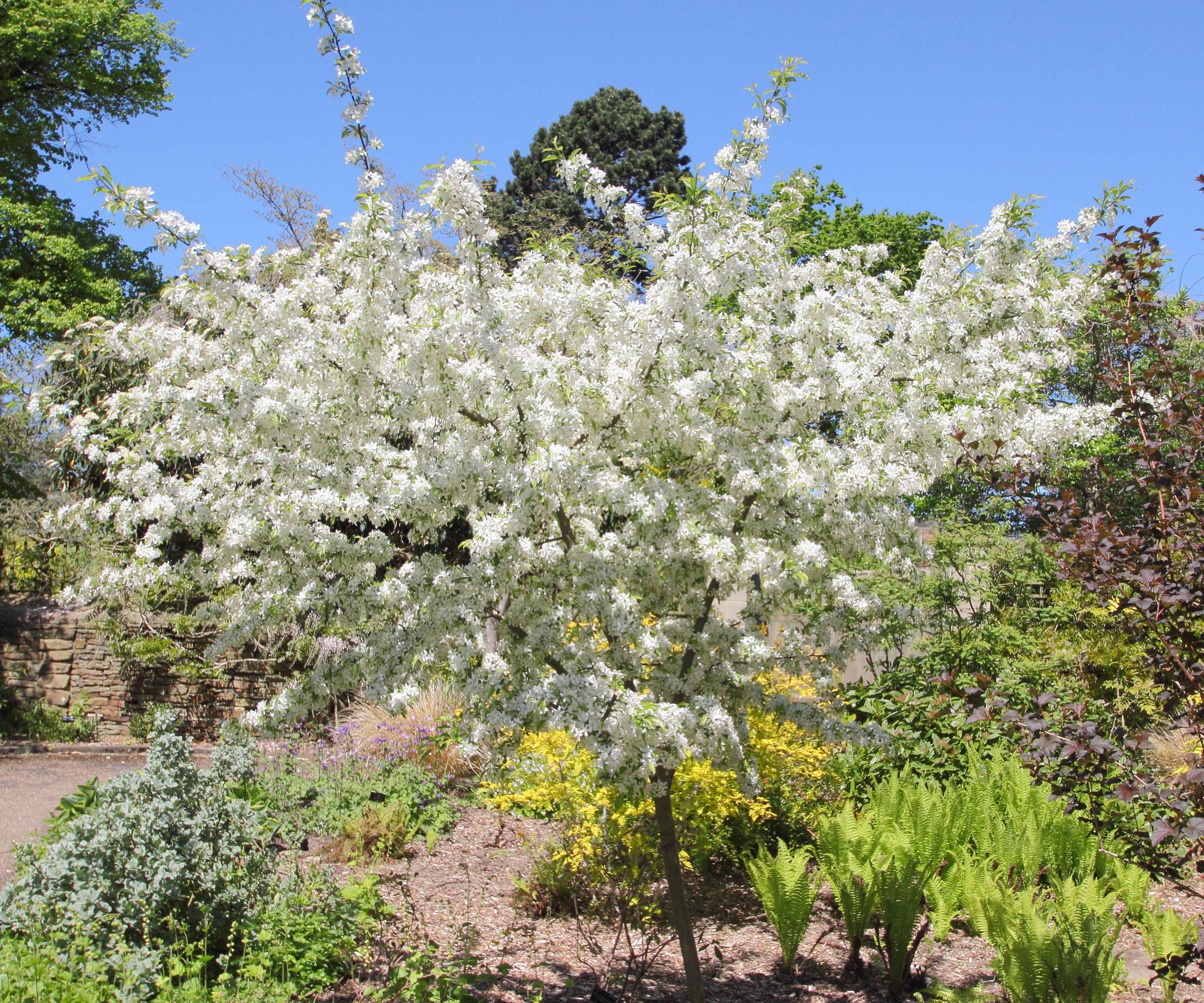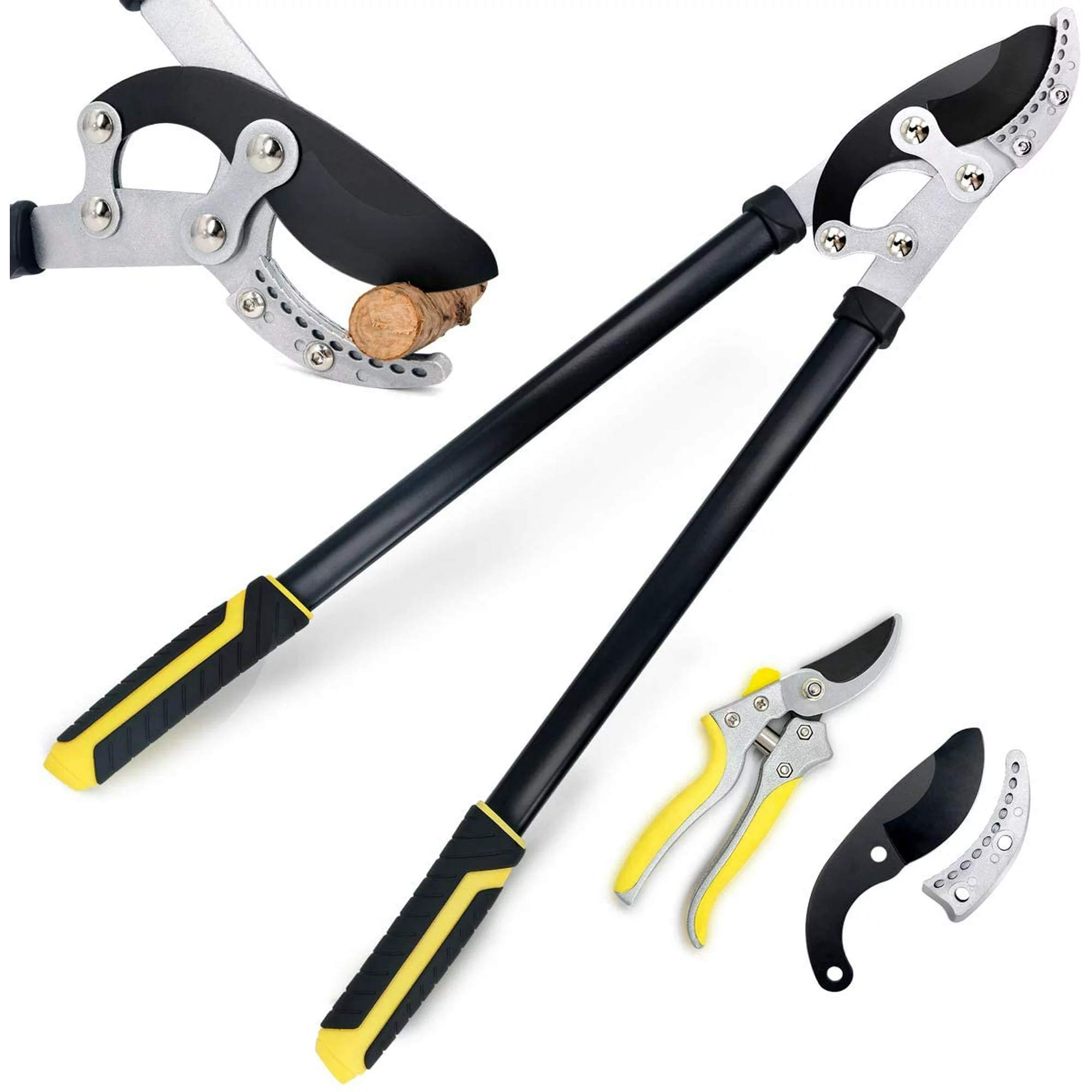When to prune crabapple trees to keep them in top condition
Discover the best time to trim crabapples, along with when to keep the pruning shears away


Design expertise in your inbox – from inspiring decorating ideas and beautiful celebrity homes to practical gardening advice and shopping round-ups.
You are now subscribed
Your newsletter sign-up was successful
Want to add more newsletters?

Twice a week
Homes&Gardens
The ultimate interior design resource from the world's leading experts - discover inspiring decorating ideas, color scheming know-how, garden inspiration and shopping expertise.

Once a week
In The Loop from Next In Design
Members of the Next in Design Circle will receive In the Loop, our weekly email filled with trade news, names to know and spotlight moments. Together we’re building a brighter design future.

Twice a week
Cucina
Whether you’re passionate about hosting exquisite dinners, experimenting with culinary trends, or perfecting your kitchen's design with timeless elegance and innovative functionality, this newsletter is here to inspire
Crabapples are very popular trees and they are simple to maintain. Known for beautiful blooms in spring and their small, yet colorful, apples come fall, the trees do not often need lots pruning. However, it is beneficial to know the best time to prune for when it is required.
As a deciduous tree, the crabapple is ideally pruned during its period of dormancy, though the exact window to trim may depend on your climate. Making the right call to head out with the pruning shears at the correct time can hugely benefit your crabapple tree.
If you are looking to plant crabapple trees to add them to your backyard ideas, or you have existing specimens in your garden, then knowing when to prune crab apple trees makes sure your tree will be healthy and thriving.

Crabapple trees do not need lots of large-scale pruning
Why prune a crabapple tree?
Pruning a crabapple can be beneficial to preserve the health and shape of the tree. The task can remove dead, diseased or damaged wood, maintain the desired form of the fruit tree, and also thin the canopy to let in more air and light.
The trees don’t tend to require lots of pruning, but crabapples that are grown as espalier trees or as trees in pots will want more regular trimming, to keep their growth contained, than trees in the ground or in flower beds or borders.
When is the best time to prune a crabapple tree?

Pruning crabapple trees will maintain their health
The best time to prune crabapple trees is from late winter to early spring. They are one of the best trees for fall color thanks to their fruits and, as deciduous trees, they drop their leaves when the temperatures drop.
In terms of when to prune trees, most deciduous trees are pruned during the window of late winter to early spring, once the worst of the winter weather has passed and before the buds start to swell ahead of the new growth starting in spring. Typically this is a task to be done between late in January and early April, depending on your climate.
Design expertise in your inbox – from inspiring decorating ideas and beautiful celebrity homes to practical gardening advice and shopping round-ups.
Pruning crabapples from late winter onwards minimizes the risk of cold-related injuries - this is especially vital if you live in colder US hardiness zones as hard frosts can penetrate and damage a pruning wound before it has a chance to heal over. Any trimming in the extreme colds of winter would be a pruning mistake that can cause die-back or even potentially kill trees.
Heading out and trimming once the temperatures start to improve in late winter helps the tree, as it minimizes the stress on the tree and it can actively recover faster from pruning cuts once it sparks back into life, the sap starts to flow, and the tree starts to put on new growth.
Lindsey Hyland from Urban Organic Yield hails the ‘multiple ways’ that late winter or early spring pruning benefits crab apple trees. On top of reducing the risk of injuries, it can also help maintain the overall health and virility of the tree.
She says: ‘It reduces the risk of transmitting diseases, as many pathogens are less active during colder months.’
As well as pathogens not being so active during the colder months, pollinators that may carry and move viruses between trees and plants are also not out and about in abundance and many bacteria and fungus are also not as prevalent in winter.
Pruning in dormancy also has advantages for gardeners. ‘Notably, leafless trees offer better visibility and branch access during this time,’ adds Lindsey. ‘Clear visibility of the branches due to leaf absence simplifies the task, ensuring no vital parts are inadvertently harmed.’
While pruning should ideally be restricted to late winter or early spring, there are some little trimming tasks that can be done at any time of the year. This includes tackling dead or damaged branches as and when you see them, and removing suckers that shoot up around the base of the tree. The removal of suckers prevents these unwanted shoots taking precious energy away from the rest of the tree.
When you prune crab apple trees, it is advisable to be cautious and not get too carried away with the pruning shears or pruning saw. The trees can cope with a heavy pruning if required, but it is not recommended, and any large work should be done over a period of years.
‘Moderation is key’, says Alex Testel from Frugal Frontier. ‘Avoid excessive pruning as crabapple trees don't require extensive cutting. Aim to remove no more than 25-30% of the canopy annually.’
The one-third pruning rule is something to always bear in mind when pruning trees or shrubs. Removing more than a third of any material from any plant can over-stress it and lead to unpredictable growth. The tree or shrub can be stunted overall, or removing too much can prompt the opposite response and a tree may react by putting out lots of undesirable weak and straggly growth.

Lindsey Hyland is the founder of Urban Organic Yield. She grew up in Arizona and attended the University of Arizona’s Controlled Environment Agriculture. She has worked on various organic farms and shares her gardening journey on Urban Organic Yield.

Alex Testel is an avid gardener and horticulture expert. At Frugal Frontier, his approach to gardening is anchored in eco-conscious and efficient methods. His focus is on helping gardeners create thriving, eco-friendly gardens with a special emphasis on tree care and maintenance.
FAQs
Can you prune crabapple trees in the fall?
Fall is not a good time to prune deciduous trees, for several reasons. It will create open pruning wounds at a time when bacteria and pathogens are rife, leaving the tree at risk of disease, and also encourage the tree to respond by putting out a flush of new stems.
This tender growth stimulated by fall pruning will not be able to withstand the winter, being easily damaged by frosts and putting the tree at an increased risk of diseases. Deciduous trees want to be left to naturally prepare and go into dormancy, and pruning in fall will be an obstacle to this.
Can you prune crabapple trees in the spring?
Crabapple trees can be pruned in early spring if that suits your local climate more than late winter. It is important to get the pruning done early in the season, before the new leaves start to emerge later in spring.
If you are looking for a simple tree to look after, then crabapples should be considered as they are one of the best plants for beginners. Coming in a range of colors and sizes, including dwarf forms ideal for small backyard ideas, you are going to be able to find a crabapple for any desire or space.
You can see the range of crabapple trees at Fast Growing Trees

Drew has worked as a writer since 2008 and was also a professional gardener for many years. As a trained horticulturist, he worked in prestigious historic gardens, including Hanbury Hall and the world-famous Hidcote Manor Garden. He also spent time as a specialist kitchen gardener at Soho Farmhouse and Netherby Hall, where he grew vegetables, fruit, herbs, and cut flowers for restaurants. Drew has written for numerous print and online publications and is an allotment holder and garden blogger. He is shortlisted for the Digital Gardening Writer of the Year at the 2025 Garden Media Guild Awards.
